Supreme Court: A Division Bench comprising of Dr D.Y. Chandrachud and M.R. Shah, JJ. upheld the order of the Karnataka High Court whereby an application under Order 7 Rule 11 CPC (Rejection of plaint) filed by the appellant was dismissed. While deciding the appeal, the Supreme Court summarised the guiding principles for deciding an application under Order 7 Rule 11(d) of CPC.
Facts and Appeal
Shorn of details, the parties to the instant appeal were involved in a property dispute. The suit property originally belonged to the respondent and his brother which was mortgaged to Karnataka State Finance Corporation (“KSFC”) as security against a loan. Since the loan was not repaid, KSFC auctioned the suit property which was ultimately purchased by the appellant[1]. The respondent and his brother failed to handover possession of the suit property. Consequently, the appellant filed a suit (“2007 Suit”) for possession. The respondent raised various defences.
During pendency of the 2007 Suit, the respondent too instituted a suit (“2008 Suit”) challenging the sale deed executed by KSFC in appellant’s favour, primarily on the ground that KSFC had no authority to put the suit property for sale.
In 2009, the trial court decreed the 2007 Suit in favour of the appellant. The respondent appealed against this judgment of the trial court; however, the Karnataka High Court affirmed the trial court’s judgment.
Pursuant to the judgment in the 2007 Suit, the appellant filed an application under Order 7 Rule 11 CPC for rejection of plaint in the 2008 Suit on several grounds, the main ground being that of res judicata. It was contended that the grounds in the 2008 Suit relating to the validity of the sale deed and the issue of title were already raised in the previous 2007 Suit. The appellant urged that after the judgment in the 2007 Suit settling the issues in favour of the appellant, the rights of the parties cannot be further adjudicated and relitigated.
However, the application under Order 7 Rule 11 CPC filed by the appellant was rejected by the trial court and the revision petition filed before the High Court was also dismissed. Aggrieved, the appellant approached the Supreme Court.
Analysis and Observations
Material to be construed while deciding an Order 7 Rule 11(d) application
Foremost, the Supreme Court noted that Order 7 Rule 11(d) of CPC provides that the plaint shall be rejected “where the suit appears from the statement in the plaint to be barred by any law “. Hence, in order to decide whether the suit is barred by any law, it is the statement in the plaint which will have to be construed. It was observed:
“The Court while deciding such an application must have due regard only to the statements in the plaint. Whether the suit is barred by any law must be determined from the statements in the plaint and it is not open to decide the issue on the basis of any other material including the written statement in the case.“
Rule of res judicata
The Court referred to Section 11 CPC and enunciated the rule of res judicata thus: A court shall not try any suit or issue in which the matter that is directly in issue has been directly or indirectly heard and decided in a ‘former suit’. Therefore, for the purpose of adjudicating on the issue of res judicata, it is necessary that the same issue (that is raised in the suit) has been adjudicated in the former suit. Reliance was placed on V. Rajeshwari v. T.C. Saravanabava, (2004) 1 SCC 551 wherein a 2-Judge Bench of the Supreme Court discussed the plea of res judicata and the particulars that would be required to prove the plea. It was held that it is necessary to refer to the copies of pleadings, issues and judgment of the ‘former suit’ while adjudicating on the plea of res judicata.
Guiding principles for deciding an Order 7 Rule 11(d) application
Following the law laid down in a catena of judicial precedents including Kamala v. KT Eshwara Sa, (2008) 12 SCC 661; Church of Christ Charitable Trust & Educational Charitable Society v. Ponniamman Educational Trust, (2012) 8 SCC 706; and Soumitra Kumar Sen v. Shyamal Kumar Sen, (2018) 5 SCC 644, the Court summarised the guiding principles for deciding an application under Order 7 Rule 11(d) of CPC:
(i) To reject a plaint on the ground that the suit is barred by any law, only the averments in the plaint will have to be referred to;
(ii) The defense made by the defendant in the suit must not be considered while deciding the merits of the application;
(iii) To determine whether a suit is barred by res judicata, it is necessary that (a) the ‘previous suit’ is decided, (b) the issues in the subsequent suit were directly and substantially in issue in the former suit; (c) the former suit was between the same parties or parties through whom they claim, litigating under the same title; and (d) that these issues were adjudicated and finally decided by a court competent to try the subsequent suit; and
(iv) Since an adjudication of the plea of res judicata requires consideration of pleadings, issues and decision in the ‘previous suit’, such a plea will be beyond the scope of Order 7 Rule 11(d), where only the statements in the plaint will have to be perused.
Merits
Considering the material on record, the Court noted that a reading of the plaint in the 2008 Suit makes it evident that the respondent made no attempt to conceal the fact that the 2007 Suit regarding the property was already pending before the trial court. The Court also found it relevant to note that at the time of institution of the 2008 Suit, no decree had been passed in the 2007 Suit. Thus, the issues raised in the 2008 Suit had not been adjudicated upon.
Therefore, the Court was of the view that the plaint, on the face of it, did not disclose any fact that may lead to the conclusion that it deserved to be rejected on the ground that it was barred by principles of res judicata. It was opined that the High Court and the trial court were correct in their approach in holding that to decide on the arguments raised by the appellant, the court would have to go beyond the averments in the plaint, and peruse the pleadings and judgment and decree in the 2007 Suit. Observing that “an application under Order 7 Rule 11 must be decided within the four corners of the plaint”, the Supreme Court held that the trial court and high court rightly rejected the application under Order 7 Rule 11(d).
Decision
For the above reasons, the Court held that the plaint in the 2008 Suit was not liable to be rejected under Order 7 Rule 11(d). The judgments of the trial court and the High Court were affirmed. It was however clarified that the Court expressed no opinion on whether the subsequent suit was barred by the principles of res judicata. Liberty was given to the appellant to raise such issue before the trial court. [Srihari Hanumandas Totala v. Hemant Vithal Kamat, 2021 SCC OnLine SC 565, decided on 9-8-2021]
Tejaswi Pandit, Senior Editorial Assistant has reported this brief.
[1] The suit property was originally purchased by predecessor-in-interest of the appellant in the auction conducted by KSFC, and it was subsequently purchased by the appellant from the predecessor-in-interest.


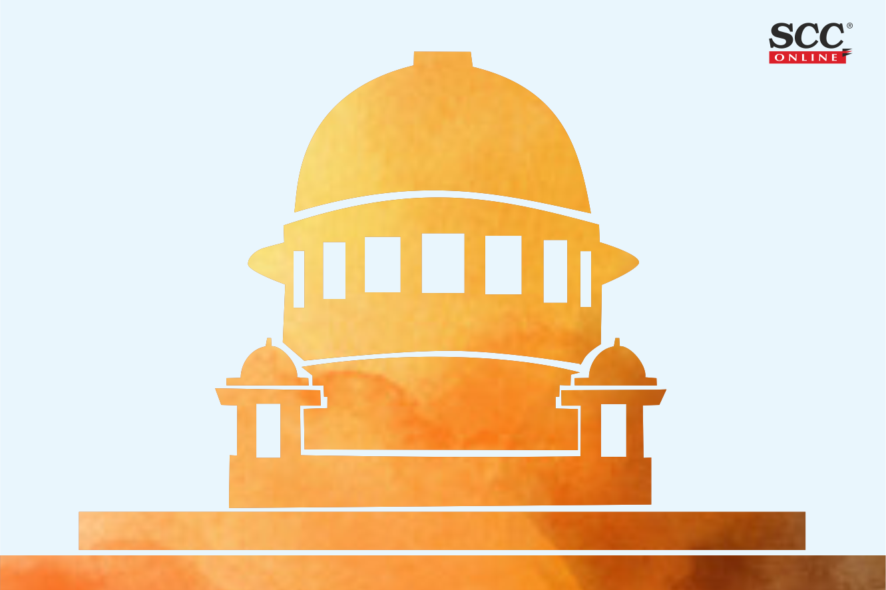
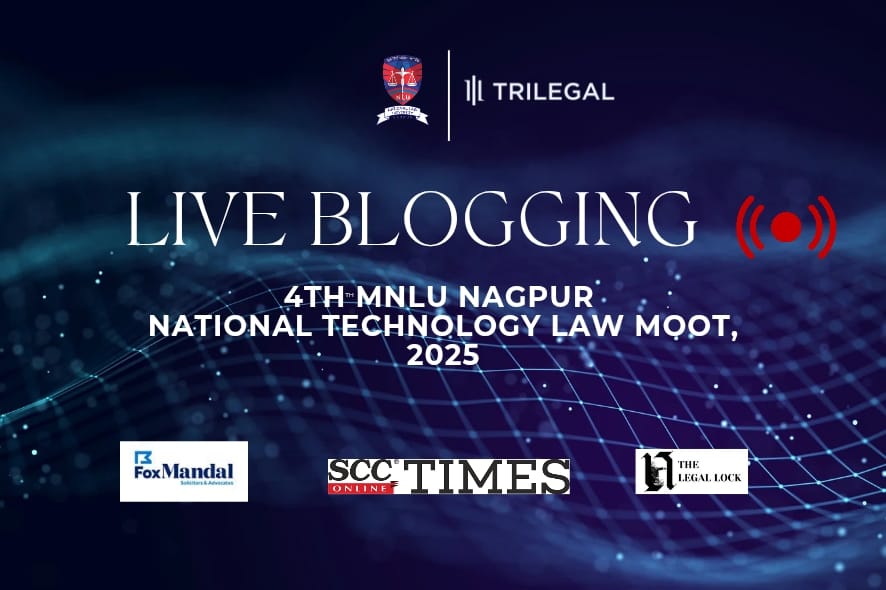
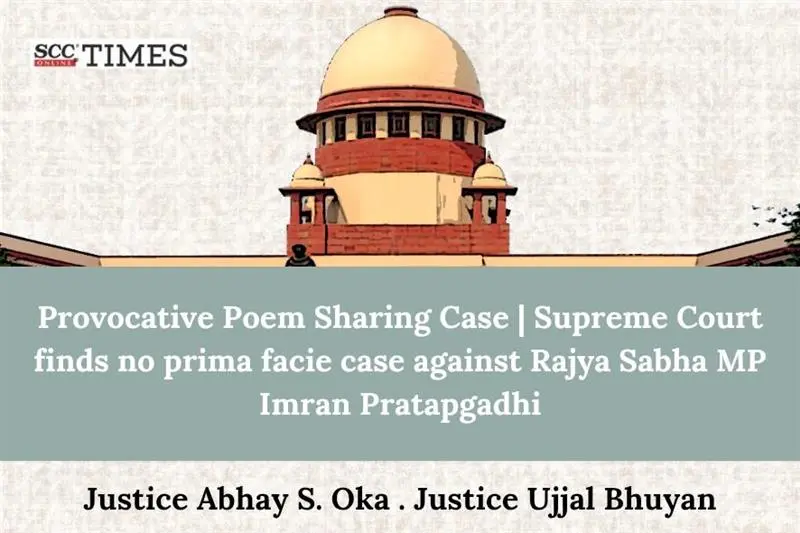
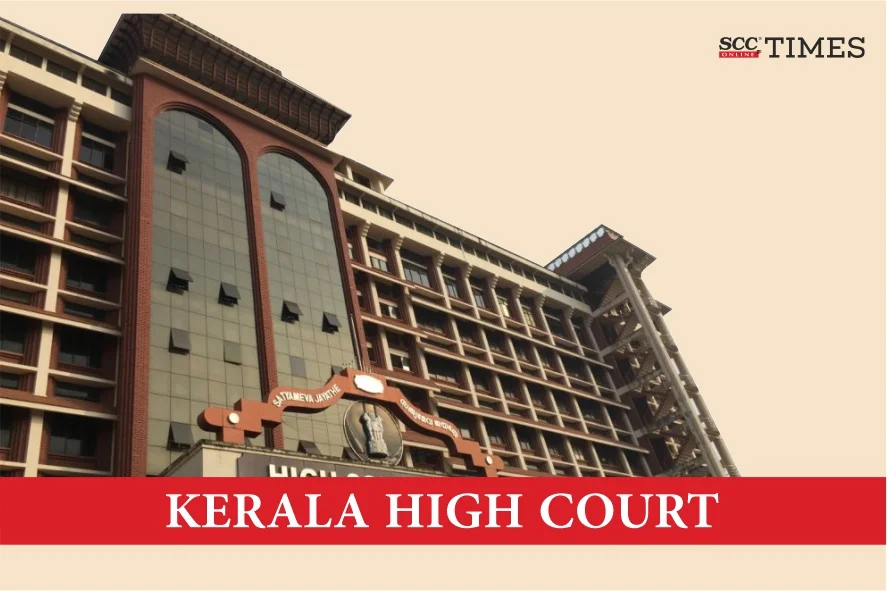


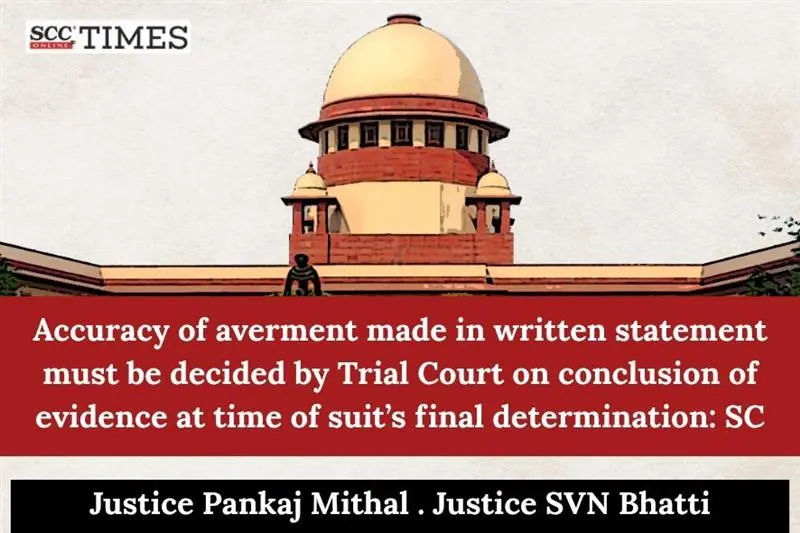




Application u/s 34 of Arbitration Act, 1996 by the Awardee, relating to Arbitral Award, having been decided by ADJ at Sonepat, can a later application, similarly u/s 34 filed by the other party, for setting aside the SAME AWARD, be maintained at similar court of ADJ at Visakhapatnam;
Would any interim order passed by later ADJ be valid and lawful to be honoured / complied with ?
[…] 4. Tejaswi Pandit, Conundrum of res judicata and rejection of plaint: SC summarises guiding principles for deciding an application under Or. 7 R. 11(d) CPC, CASE BRIEFS (Aug. 15, 2021, 12:49 AM), https://www.scconline.com/blog/post/2021/08/10/conundrum-of-res-judicata-and-rejection-of-plaint/. […]